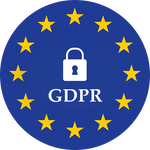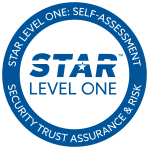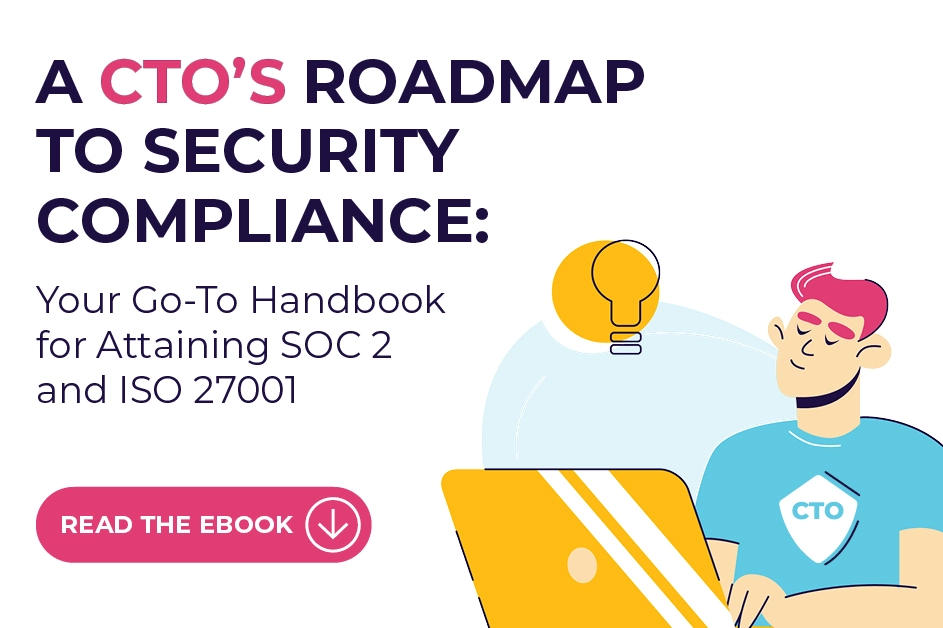Have you ever felt overwhelmed by the compliance requirements of running a startup? You’re not alone. As a startup founder trying to build your new organization from the ground up there’s a ton to do – And one of the commitments is keeping security compliance regulations and industry standards, and all that red tape! But the truth is, compliance is crucial for startups. It shows your customers you’re trustworthy and helps ensure your long term success.

Why Compliance Matters for Startups
If you’re a startup, compliance should be at the top of your priorities list. Here is why:
Builds Trust
Compliance certifications show your commitment to security posture, your clients’ privacy, meeting industry standards and regulatory requirements. This establishes customer trust, which is essential for startups. If you want people to use your product or service, they need to believe you will handle their private data properly.
Enables Growth
Startups are subject to various legal and regulatory obligations or industry best practices. Meeting these obligations through compliance allows you to scale your business. At times, non-compliance can lead to very hefty fines and legal issues.
Compliance as a Strategic Asset
Viewing compliance as a strategic asset rather than a mere legal requirement can transform how your startup approaches this crucial aspect. It’s about weaving security and privacy into the fabric of your business, turning what could be seen as an obstacle into a competitive advantage.
Close Deals Faster
In the fast-paced world of startups, efficiency is vital. Compliance can be a great ally in this regard. When your startup is compliant with relevant regulations and industry standards, it simplifies the due diligence process for potential clients and partners. They can quickly see that you are a trustworthy and reliable partner, which can speed up deal closures.
Protects Your Reputation
Establishing a culture of compliance from the start helps ensure you avoid issues that could damage your company and brand, which could lead to customers or partners walking away from working with you.
Compliance should be a top priority for startups. Embedding the importance of compliance and security into your company’s culture and operations from day one, will set you up for success through customer trust, growth, and brand protection. What could be more important than that?
Understanding Regulatory Compliance for Startups
To build trust and credibility, startups need to focus on regulatory compliance from day one.
Regulatory compliance refers to compliance frameworks that are mandated by law. Some organizations do not require law mandated frameworks, but many organizations will still adapt certain frameworks, as there’s not much choice when customers are requesting certain audit reports in order to do business, such as SOC 2 or ISO 27001. Being compliant may not be a mandatory requirement in some cases, yet being compliant gives organizations a competitive edge; creates a strong security posture; aids organizations in ethical practices (protecting clients’ sensitive information) and ultimately contributes to an organization’s reputation.
Choose the Right Compliance Framework
Selecting an appropriate compliance framework is key. Do your research to determine which standards and regulations apply to your industry, business model, and organization. Some common frameworks include ISO 27001, SOC 2, HIPAA, and GDPR. Aligning with a proven framework shows customers you take compliance seriously.
Understand Your Obligations
As a startup, you’re still subject to various obligations like any other business. Make sure you understand all the requirements around data privacy, security, and industry-specific regulations. Failure to comply can lead to legal trouble, fines, and a damaged reputation.
Implement Strong Policies and Procedures
Draft comprehensive policies that align with your compliance framework and obligations. Specify procedures to implement each policy, and hold your team accountable. Topics should include data governance, security protocols, HR practices, and more. Review and update policies regularly to maintain your compliance and keep your security posture strong.
Continuous Monitoring
Compliance is not a one-time-thing, it is an ongoing process. Monitor your systems and procedures continuously to ensure alignment in all areas. Conduct internal audits and risk assessments. Stay up-to-date with evolving regulations and make changes as needed. Early detection of issues allows for quick correction to avoid major problems in the future.
Seek Expert Guidance
For startups, compliance expertise may be hard to come by in-house. Don’t hesitate to seek guidance from compliance experts. They can help set up and review your security compliance program and get you audit-ready. . Their input will help build a robust, trustworthy compliance program from the ground up, as well as fast-track your audit-readiness process.
Types of Regulatory Compliance for Startups
Choosing the right compliance framework for your startup is key. There are a few types of regulatory compliance you’ll want to consider based on your industry and business model. Regulatory compliance refers to a compliance framework that involves laws and regulations.
Data Privacy Laws and Industry Regulations
These laws govern how you can collect, store, and share personal data, making sure you have the proper consent, security measures, and data handling procedures in place.
GDPR
The General Data Protection Regulation (GDPR) is a European regulatory framework that pertains to data protection and privacy within Europe and the European Economic Area. Its purpose is to guarantee the protection and security of individuals’ data in this digital era. To maintain adherence to the technical specifications of GDPR, it is crucial for organizations to establish optimal approaches for data management.
HIPAA
The Health Insurance Portability and Accountability Act (HIPAA) of 1996 was created to set a nationwide benchmark for safeguarding and preserving the confidentiality, integrity, and availability of electronic health information in healthcare organizations. HIPAA’s primary objectives include regulating and fortifying the management of Protected Health Information (PHI). To achieve these goals, HIPAA comprises three fundamental regulations: The Privacy Rule, The Security Rule, and The Breach Notification Rule.
PCI DSS
Although PCI DSS is not mandated by law, it is often required by credit card companies and discussed in credit card network agreements. If your organization comes into contacts with cardholder data, you’ll need to comply with PCI DSS.
Industry Standards and Frameworks
ISO 27001 and SOC 2 are not legally binding, but they are one of the most commonly used security frameworks due to their high data security standards and global recognition.
SOC 2 and ISO 27001 are both very reputable frameworks related to information security and data protection. Both frameworks are often used by organizations to show their commitment to safeguarding sensitive information and ensuring the security of their systems and processes.
Top 10 Compliance Tips for Startups
1. Choose the Right Framework
Choose a compliance framework that suits your industry and operations. In terms of information security, ISO 27001 is one of the most common frameworks, which provides guidelines for developing an information security management system (ISMS). But depending on the industry, its customers, and location, one will look at other frameworks that will be suited for your organization.
2. Define Policies and Procedures
Establish written information security policies and procedures. This will ensure operations around compliance are detailed and followed correctly.
3. Fully Understand All the Data You’re in Contact With
Be aware of the data you collect, manage and where it is stored. Understanding your data is vital for data compliance.
4. Build a Compliance Team
Establish a dedicated compliance team or designate individuals within your startup to oversee or project manage all compliance efforts. This team should guide your organization in adhering to regulatory requirements and internal policies.
5. Assess the Gap Between Your Controls and Compliance Requirements
It might also be known as a CSA (Controls Self Assessment), which is essentially a self-audit against a program, framework, or similar, to assess your audit readiness. The gap analysis report can also serve as input for your risk register, specifically categorized as “audit risks.” During this process, you will compare your current state of security against audit requirements. If you are new to a compliance framework and lack in-house expertise, you might want to consider working with a qualified compliance consultant to carry out the gap assessment.
6. Address Gaps Before Your External Audit
Your initial gap analysis is likely to uncover a number of issues requiring remediation. Begin by mitigating the issues, especially those that pose the highest risk to your organization, considering both the likelihood and potential impact if they remain unaddressed.This is all about the remediation process!
7. Leverage Compliance Experts!
For small startups, compliance can be challenging to achieve with limited resources, lack of expertise and no inhouse compliance expert. Consider working with a consultant or compliance partner to help navigate through the audit-readiness process.
8. Conduct a Risk Assessment Regularly
Conduct regular risk assessments within your organization and implement specific risk management procedures – make this part of the DNA of your organization!
9. Keep Up-To-Date With Security Awareness Training
Ongoing security awareness training is not only an audit requirement, but a deal-breaker for implementing a sustainable security posture. Security Awareness is intended to improve the cybersecurity knowledge and behaviors of employees within an organization. The main objective of security awareness training is to educate contractors, employees, and other relevant personnel about the potential security risks and threats that may be encountered in their daily activities and prepare them with the knowledge and skills to deal or mitigate those risks correctly. Making sure all employees get security awareness training, keeps your whole organization understanding their unique role in keeping the data they hold secure.
10. Set Up Programmes and Tools to Help with Continuous Compliance
As we mentioned, compliance is not a one-time thing, the compliance a company has attained, needs to be maintained. To maintain continuous compliance, systems will rely on automated control monitoring softwares. These softwares are able to scan for any types of violations, as well as identify weaknesses or vulnerabilities which could put the organization at risk for data breaches or other potential threat. Continuous Control Monitoring (CCM) ensures your startup is operating on a day-to-day basis within specific compliance standards.
All in all, staying on top of compliance is very important as a startup. It’s easy to get caught up in the excitement of growth and innovation, but you can’t afford to put compliance on the backburner. Make it a priority to implement a comprehensive compliance program from day one. Choose frameworks that match your industry and business model. Educate your team, monitor your systems regularly, and make improvements over time. Compliance may seem like a hassle, but it’s an investment in your company’s future. When customers see your commitment to best practices to security compliance, they’ll trust you’re built to last!












